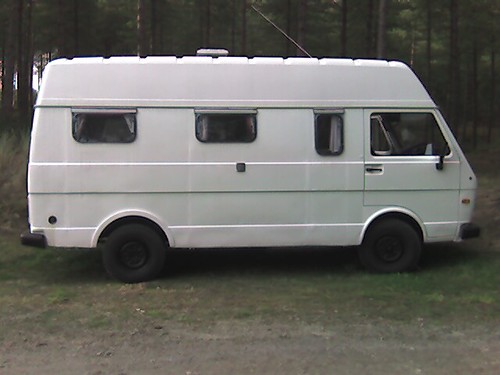4 minutes estimated reading time
A mix of technology and economics occurred in the 1980s which saw consumers spending much more time in a world of their own at home. This was driven by the video recorder and cable television in the US, it sank traditional cinemas and encouraged the film industry to fight back with the multiplex. We became more depraved as porn moved from grubby cinemas to your living room. Sociologists and marketers called this phenomena cocooning. In reality cocooning never went away, it evolved. For cocooning 2.0, instead of NICAM, VHS and Betamax you have DVD, DSL, social networks and BitTorrent.
I think that technology has moved the unreality bubble that cocooning creates, allowing consumers to screen themselves from society interacting through the screen rather than face-to-face from the home to also on the move. What got me thinking about this was a conversation with my Dad.
My Dad has been driving since the early 1960s. In his first (and only) new car, (as having a family screws your disposable income) he used to have an assortment of petrol company maps and an Esso tiger soft toy which he hacked so that its eyes flashed in time with the indicator lights. My childhood and young adult experience in a car was with jagged mosaics of petrol company maps that I tried to fold neatly and organise in his cars, until I got tired of the whole process and introduced him to the AA’s series of atlas. Its harder to make a mess with a well-bound book.
My Dad is finally selling the ‘rave machine’ (a Volkswagen LT35 turbo diesel camper van which served me well as a comfortable base for diving and going to raves / free festivals). I was clearing out a mass of petrol company maps that he no longer used and putting them all in the recycle bin. He didn’t want to move the maps over to his present car since he is the proud owner of a GPS navigation unit that my Mam had picked him up from discount supermarket Aldi. I realised that the amount of interaction that service station staff and local populace would have with my Dad now he had gone digital would be hugely reduced as he paid for his diesel at the pump with a built-in card reader and never now ventured into the office unless he wanted to feed his Fisherman’s Friend addiction. There was no longer going to be that kitchen sink drama played out as him and my Mam would argue about asking for directions from a local person any more.
My Dad’s move to a GPS device made me realise that we cocoon ourselves from society around us on the move as well as in our home:
- How many people use their mobile phone or check their email whilst waiting for a friend in the pub?
- How many people use an iPod or play a game on their mobile phone when on public transport? It is interesting that the first Walkmans came with two earphone sockets for shared listening, whereas the design of Apple’s earbuds would make you think twice about sharing your listening experience with someone unless they were really close to you
- How many people have used Google Maps on their phone rather than asking someone for directions?
- Iceland and other supermarkets have been delivering groceries for a while, meaning that you don’t have to interact with your local community in the shop any more
Apart from having an online supermarket shop, I have done all the activities listed above. And that’s mainly because my fridge freezer is a bit small rather than any great desire to chat with my neighbours over the tops of our wire supermarket trolleys. My smartphone goes beyond location-based services to provide me with a location-based reality bubble.
Cocooning 2.0 is about shutting out society in the real-world even as we interact more closely with our trusted communities through online means. Thinking about some of the utopian ideas that I heard from Castells speaking the other week, I am curious to know what does this mean for the civil society in the longer term as we become disconnected and can’t relate?
I am sure that entrepreneurs will already be thinking about the future market full of potential for ‘authentic’ experiences even as we willfully ignore them on our front door. When you think about your local independent coffee shop, Starbucks or private members clubs like The Hospital isn’t part of their attraction about providing an ‘authentic’ community experience?

